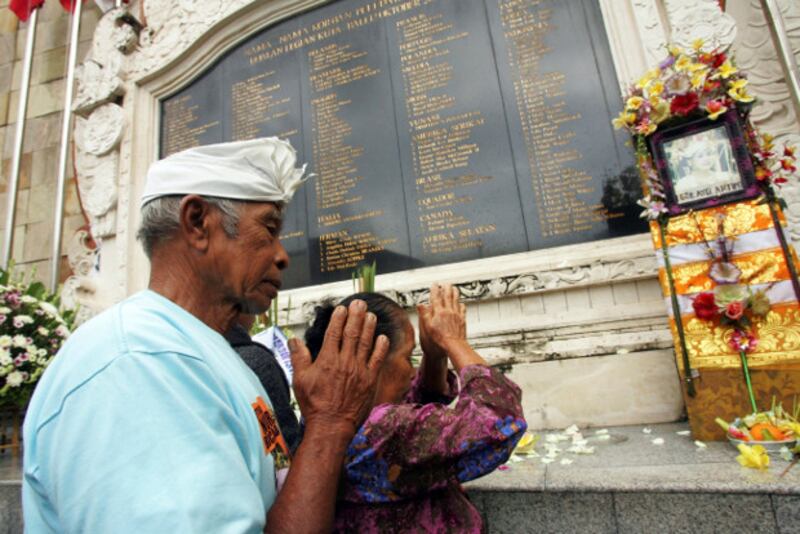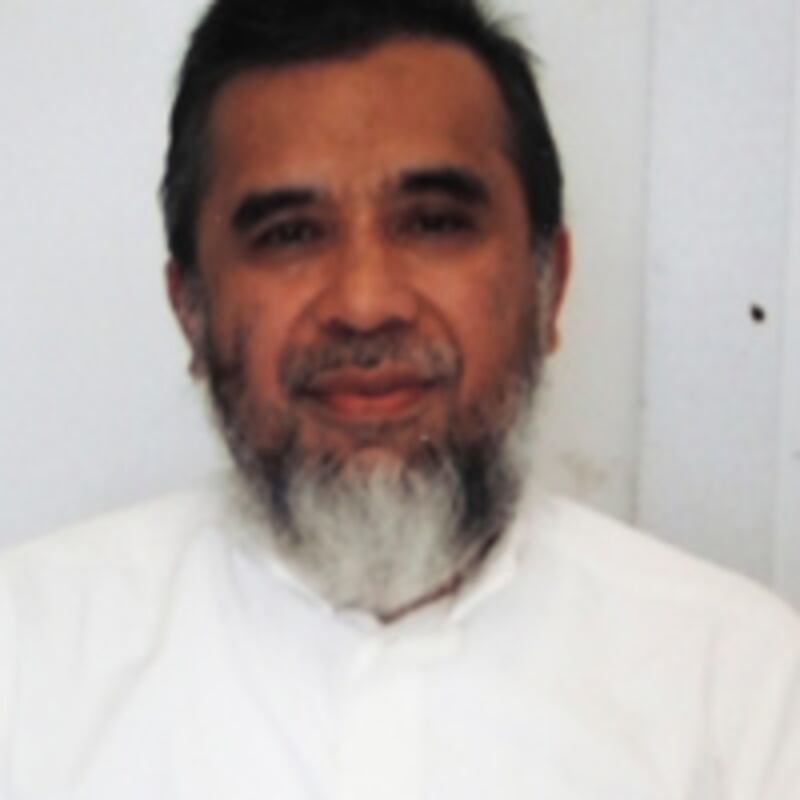FBI agents have visited Malaysia to conduct interviews and gather statements in preparation for the potential trial of Hambali, the Guantanamo prisoner accused of masterminding the 2002 Bali bombings in Indonesia that killed more than 200 people, Malaysia’s police chief said Friday.
Pentagon prosecutors filed new and expanded charges against Hambali on April 5, accusing the Indonesian national of conspiring with al-Qaeda leader Osama bin Laden and 47 others to commit terrorist attacks across Southeast Asia and elsewhere.
“Yes, they did. They only came here to gather statements to strengthen their case on Hambali in the U.S. courts,” Inspector-General of Police Abdul Hamid Bador told BenarNews in an interview, referring to the FBI agents. “Yes, they came a few times.”
Abdul Hamid said Malaysian authorities helped the American investigators locate people who could be interviewed in the case so that their testimony could be included in the hearing.
“[We provided] the people for them to interview to get the deposition for their case,” he said.
“They took the statements and if the defense wants to question that, it is up to [the] court,” the police chief added.
Ron Flesvig, spokesman for the Office of Military Commissions-Convening Authority, told BenarNews on Friday that charges against Hambali “had been referred,” paving the way for pre-trial proceedings.
The 55-year-old Hambali, whose real name is Encep Nurjaman (alias Riduan Isamuddin), was arrested in Thailand in August 2003 with Malaysians Bashir Lap (alias Lilie) and Mohd Farik Bin Amin (alias Zubair). Hambali was the former military leader of Jemaah Islamiyah (JI), an Indonesian terror group linked to al-Qaeda.
Their capture took place 10 months after the bombings that killed 202 people, including 88 Australians, on the Indonesian island of Bali, on Oct. 12, 2002.
Hambali’s attorney, Maj. James Valentine, told BenarNews early this month that he and three members of his legal team had interviewed a former terrorist in Malaysia in July 2019 in relation to his case. He declined to give details.
Asked by BenarNews if Malaysia was still working with the United States to seek the return of Hambali’s lieutenants, Lilie and Zubair, the Malaysian police chief said, “Of course we want them to come back.”
“It is the duty of the government to bring them back,” Abdul Hamid said. “That is the responsibility of any nation. Does not matter what they did.”
Malaysia had said previously that it was up to the United States if it wanted the duo to stand trial on U.S. soil, and if convicted, made to serve their sentences in Malaysia.
“Although one of them seems to have repented, the other is still a bit tough, so it all depends on the U.S.,” Abdul Hamid’s predecessor, Fuzi Harun, had said earlier this year.

Prosecutors say Hambali funded and masterminded the Bali attack in October 2002. He is also accused in a bombing that killed 12 people and injured 150 others at the Marriott Hotel in the Indonesian capital on Aug. 5, 2003.
After the trio of suspects was arrested, they were sent to a secret CIA prison network before being moved to the U.S. military prison located within the Guantanamo Bay Naval Base in September 2006.
News reports had said that FBI officers had also visited Indonesia over Hambali’s case last year but Indonesian officials denied such a visit took place.
Hambali’s attorney, Valentine, said that he and two members of his team tried to enter Indonesia over Hambali’s case but were blocked from entry at the airport by immigration authorities on July 11.
“We were detained and expelled,” he said, explaining that he and the two other lawyers were held overnight in a detention cell at the Jakarta international airport before being sent back to Tokyo, their point of embarkation.
But Indonesian authorities said legal teams involved in the Hambali case had not visited the country. Foreign Ministry spokesman Teuku Faizasyah said he had “never heard about a visit by Hambali’s lawyers or investigators to Indonesia.”
“If Hambali’s lawyers or investigators want to visit, there's an avenue for that and they should make clear their intentions,” he said. “The concerned parties can write to our embassy [in the United States].”
“No investigators from the United States have come to Indonesia as far as the Hambali case is concerned,” Dedy Prasetyo, Indonesia’s national police spokesman, told BenarNews in early August.

If convicted, Hambali could receive a maximum sentence of life in prison because prosecutors decided not to seek the death penalty, according to defense lawyers.
Indonesian officials had indicated three years ago that if Hambali were to be released, they would be reluctant to accept his repatriation for fear that his return could spur a revival among domestic terror cells.
Valentine told BenarNews that American authorities would not want Hambali’s case to go to trial in an open court because, he alleged, the proceedings would reveal torture that his client had suffered from his military captors.
